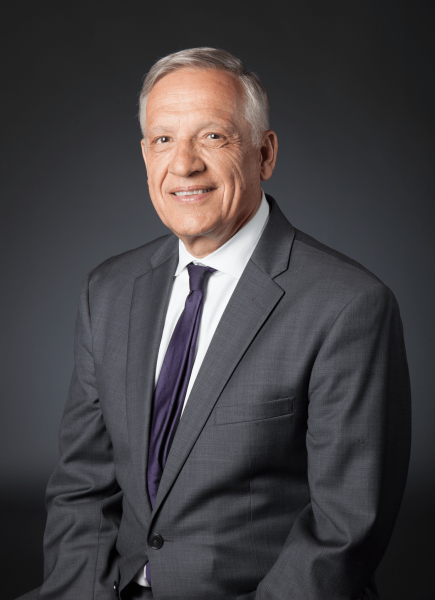Dean’s Message: Which World Do We Choose?
 In March 2020, when the COVID-19 pandemic became an incredible new reality, I could not refrain from making an analogy to what quantum physicists call the “collapse of the wave function.”
In March 2020, when the COVID-19 pandemic became an incredible new reality, I could not refrain from making an analogy to what quantum physicists call the “collapse of the wave function.”
The fact that we entered a new world almost instantly paralleled the quantum mechanics process where, from multiple possible real manifestations, only one is selected at the moment when the wave function collapses. Quantum mechanics tells us that moving from one manifestation to another does not preclude that at another time, when the wave function collapses again, one might rejoin the previous world manifestation. Perhaps we are on the cusp of such a transition to a post-COVID world.
A different view can be offered if one considers that our complex world is nonlinear, with myriad choices, and such nonlinear dynamics (often characterized as chaotic) can bring unintended consequences, such that small fluctuations somewhere have a huge effect somewhere else — similar to what is known as the butterfly effect. The 1998 movie “Sliding Doors” creatively embodied both these concepts, wherein a small action — missing a train to work — led to the unintended discovery of a parallel, and very different, world, and in the absence of that action, the more routine world would have unfolded undisturbed.
How relevant are these philosophical musings to the current reality? For one, they help us imagine the many options we have for shaping the world, and see that the decisions we make, the vision we elect to pursue, can lead to a better world for all. Such vision will be informed today by the transformative events we experienced over the past 18 months, ranging from the way we adapted technologically during the long COVID-19 seize, to the realization that much remains to be done to address social and racial inequities in our society. For another, these ideas also warn us of the possibility and relevance of unintended consequences and the underlying need for them to be considered in any decision-making. This is particularly true today: As technology advances at an accelerating rate, so too do advances in adverse, unintended consequences.
Engineering and technology are driving discovery and innovation for practically all disciplines at an unprecedented pace that is certain to accelerate even further with advances in computing of all types and the relevance of AI and data sciences in those endeavors.
At the same time, choosing what problems to focus on, which of the parallel universes we will select to inhabit, is an ethical decision. This means that as we educate the engineers, innovators and technologists of tomorrow, we should also help them with the building of character, shaped by a deep understanding of human nature, ethics and the impact, both intended and unintended, of engineering and technology on society.
In all these endeavors, with deep technological and human dimensions, we will need to constantly reinvent, innovate and lead. Together, competence and character spell trust and the creation of trustworthy engineers, who are needed more urgently than ever before. It is a vision we are committed to pursuing at USC Viterbi.



